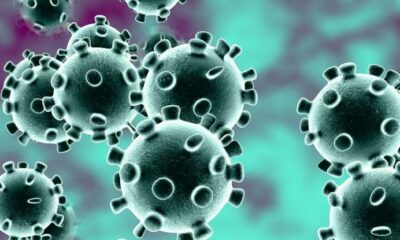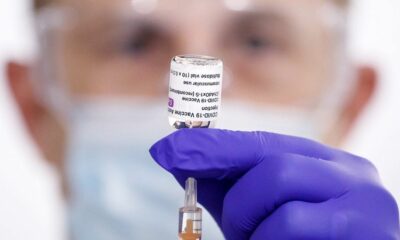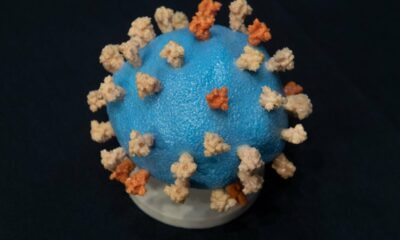We frequently face difficult choices in life that are impacted by a number of variables. The orbitofrontal cortex (OFC) and the dorsal hippocampus (DH) are two key brain regions that are essential for our capacity to adjust and make sense of these unclear situations.
According to research conducted by researchers at the University of California Santa Barbara (UCSB), these regions work together to resolve ambiguity and facilitate quick learning.
Decision-making that depends on context
The results, which were released in the journal Current Biology, offer fresh perspectives on how certain brain regions assist us in navigating situations that depend on context and modifying our behavior accordingly.
According to UCSB neuroscientist Ron Keiflin, senior author, “I would argue that that’s the foundation of cognition.” That’s what prevents us from acting like mindless machines that react to stimuli in the same way every time.
“Our ability to understand that the meaning of certain stimuli is context-dependent is what gives us flexibility; it is what allows us to act in a situation-appropriate manner.”
Decision-making context
Think about choosing whether or not to answer a ringing phone. What you say depends on a number of variables, including the time of day, who might be calling, and where you are.
The “context,” which influences your choice, is made up of several components. The interaction between the OFC and DH is what gives rise to this cognitive flexibility, according to Keiflin.
Planning, reward valuation, and decision-making are linked to the OFC, which is situated directly above the eyes, whereas memory and spatial navigation depend on the DH, which is positioned deeper in the brain.
According to Keiflin, both areas contribute to a mental representation of the causal structure of the environment, or a “cognitive map.” The brain can model outcomes, forecast outcomes, and direct behavior thanks to this map.
Despite their significance, up until now there had been no systematic testing of the precise functions of these regions in contextual disambiguation, which determines how stimuli alter meaning based on context.
Contextualizing auditory stimuli
In order to find out, the researchers created an experiment in which rats were exposed to aural cues in two distinct settings: a room with bright lighting and a chamber with no light. There was a context-dependent meaning for every sound.
For instance, one sound indicated a reward (sugar water) only when it was light, and another only when it was dark.
The rats eventually learnt to link each sound to the appropriate context, and in one situation they showed that they understood by licking the reward cup in anticipation of a treat, but not in the other.
The OFC or DH was then momentarily disabled during the task by the researchers using chemogenetics. The rats’ ability to use context to predict rewards and control their behavior was lost when the OFC was turned off.
Disabling the DH, however, had minimal effect on performance, which was unexpected considering its well-established function in memory and spatial processing.
Enhanced learning from prior knowledge
For learning new context-dependent interactions, the DH proved essential, but it appeared to be unnecessary for recalling previously learned ones.
“If I walked into an advanced math lecture, I would understand – and learn – very little. But someone more mathematically knowledgeable would be able to understand the material, which would greatly facilitate learning,” Keiflin explained.
Additionally, the rats were able to pick up new relationships far more quickly after they had created a “cognitive map” of context-dependent interactions. The duration of training decreased from more than four months to a few days.
Brain areas cooperating
By employing the same chemogenetic strategy, the researchers discovered that the rats’ capacity to use past information to discover new associations was hampered when the OFC or DH were disabled.
While the DH allowed for the quick learning of novel context-dependent relationships, the OFC was crucial for using contextual knowledge to control immediate action.
This dual role emphasizes how these brain regions assist learning and decision-making in complementary ways.
Education and neuroscience Implications
According to Keiflin, neuroscience research frequently overlooks the well-established psychological and educational theories that prior information affects learning.
Knowing how the brain leverages past information to support learning could help develop educational plans and therapies for people who struggle with learning.
The study clarifies the different functions of the DH and OFC as well. In order to acquire new relationships, the DH is more important than the OFC, which aids in behavior regulation based on contextual knowledge.
These areas work together to help the brain adjust to complicated, dynamic surroundings.
Brain’s Capacity to make Decisions based on context
The study emphasizes how crucial contextual knowledge is for managing day-to-day existence. Human cognition is based on the brain’s capacity to resolve ambiguity, whether it be while choosing whether to answer a ringing phone or when adjusting to new knowledge.
This work highlights the complex processes that facilitate learning and decision-making while also advancing our knowledge of brain function by elucidating the functions of the OFC and DH.
This information creates opportunities to investigate the potential roles that disturbances in these systems may play in disorders like anxiety or problems with decision-making.
Since this type of learning is most likely far more reflective of the human learning experience, Keiflin stated that “a better neurobiological understanding of this rapid learning and inference of context-dependent relations is critical, as this form of learning is probably much more representative of the human learning experience.”
The results open the door for future studies on the interactions between these brain areas in challenging, real-world situations, which could have implications for mental health and education.

 Entertainment3 weeks ago
Entertainment3 weeks ago
 Entertainment3 weeks ago
Entertainment3 weeks ago
 Entertainment3 weeks ago
Entertainment3 weeks ago
 Entertainment3 weeks ago
Entertainment3 weeks ago
 Entertainment4 weeks ago
Entertainment4 weeks ago
 Entertainment3 weeks ago
Entertainment3 weeks ago
 Entertainment4 weeks ago
Entertainment4 weeks ago
 Entertainment2 weeks ago
Entertainment2 weeks ago















